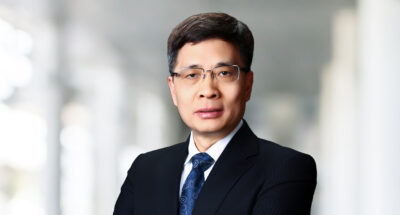
Zhou Yunjie: Haier's innovative management model drives global growth
Haier's CEO Zhou Yunjie explains how the company's innovative "RenDanHeYi" model empowers employees, drives global growth, and adapts to market changes....
November 22, 2023 • by Sophie Bacq in The Interview • 
Sophie Bacq speaks to António Calçada, Executive Managing Director of the Repsol Foundation, on how the model of corporate philanthropy is shifting from charitable giving towards investing in entrepreneurial ventures that can...
Companies have long practiced some sort of corporate philanthropy. In the early 20th century, wealthy business owners sought to give back to their communities by funding a range of charitable causes, while the social and economic movements of the 1960s and 70s gave rise to calls for businesses to take responsibility for their actions.
As organizations now look to do well by doing good and creating value for all stakeholders rather than just their own, an increasing number of companies are establishing corporate foundations to manage and direct their philanthropic projects.
So, what’s behind this trend? António Calçada, Executive Managing Director of the Repsol Foundation, the philanthropic arm of the Spanish energy and petrochemical major, believes a foundation can act as an engine for increased engagement with and commitment to societal issues across the organization. It can also give more visibility to Corporate Social Responsibility (CSR) efforts at a time when workers are increasingly choosing to work for companies based on their purpose and values.
Calçada admits that, in the past, CSR programs have sometimes got a bad rap for “social washing” – that is, promoting activities that might generate nice photographs for the annual report, but which in reality have very little impact, or worse, a negative impact. This is now changing as organizations like Repsol increasingly look to link their CSR initiatives to their core business.
“You need to put accountability on the social and put the social into the mainstream of the business,” he told me during a recent I by IMD interview.
Executive support is crucial, as is measuring the impact of your philanthropic activities. Calçada is also a strong believer that talent should be able to move freely between the main business and the foundation, and that it should be subject to the same systems, processes, and career development strategies.
“If you put these activities on an island, you will behave like an offshore and try to be like an offshore. You need to build the bridges so the foundation is deeply connected with your company,” he says.
So how can organizations approach this? Calçada says it is crucial to root your philanthropic goals within your company’s strategy and identity. This avoids the risk of being accused of social washing.
Before joining the Repsol Foundation in December 2018, Calçada held a variety of executive roles, including being a member of the Downstream Executive Committee, CEO of Repsol Commercial, and Chairman of Repsol Portugal. This understanding of the corporate side of the business has helped him shift the foundation away from traditional corporate philanthropy to a model that does good by investing in impact ventures that have the potential for scale.
Rather than “just” donating money, the foundation acts like a seed investor or startup incubator, identifying innovative solutions that can address society-wide problems. Specifically, the Repsol Foundation invests in four areas that are critical to the energy transition: carbon offsetting, sustainable mobility, circular economy, and energy efficiency.
By identifying and scaling new technologies, Repsol is using its corporate clout to help not only tackle climate change, one of the thorniest problems facing society today, but also create new sources of livelihood for the communities involved in the entrepreneurial initiatives. It will also potentially help the oil and gas major uncover new solutions to help it fulfill its commitment to achieve net zero emissions by 2050.
So far, the foundation has invested in five startups (see box). It views itself as an asset manager and expects business plans and accountability. When choosing investments, it screens startups or young companies operating in four priority areas and looks at their potential for scale. The goal is for them to be economically viable within a few years, while also having a social and environmental impact.
As a large organization, the advantage of putting these activities within a separate foundation is that it disentangles them from the bureaucracy that can sometimes hamper progress. “If you keep scaling up a bit separate from the mainstream, the first thing you get is speed because you are not embedded in the very long processes of decision-making,” he says.
In addition to these five investments, Repsol Foundation has an Entrepreneurs Fund, which acts as an accelerator for energy transition startups. Over the past decade, they have accelerated over 70 startups worth over 450 million euros, as well as provided mentoring for entrepreneurs. Some 80% of the businesses that have received funding still exist today.
Repsol’s philanthropic activities aren’t limited to impact investing, however, with the foundation taking a holistic approach to encourage collaboration across business, academia, and education. It has created a digital platform, Open Room, for debate around the energy transition and an educational platform, Zinkers, which aims to do the same in schools across Spain, as well as funded five University Chairs. It also encourages its employees to volunteer to help contribute to a fair and inclusive energy transition. Such a multi-stakeholder platform has the potential to accelerate our transition to a more just and sustainable society.
Calçada stresses that he has not reinvented the wheel at Repsol, but rather taken inspiration from some of the best foundations worldwide that are admired for their impact.
For others looking to take a similar route, he encourages them to start by identifying the key issues that matter to their stakeholders, as that is where they can usually have the biggest impact. Leading with purpose as a compass also helps to take away some of the risk, he adds. “Sometimes we are more worried about the problem than thinking about the solution.”
With the world desperately needing systemic change to address longstanding social inequality and environmental challenges, the foundation model could help to spur faster progress.
“We need a better world with much more sustainability,” he says. “Not in PowerPoint slides, but in real life.”
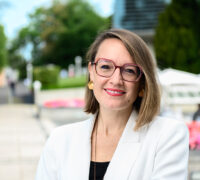
Professor of Social Entrepreneurship and Coca-Cola Foundation Chair in Sustainable Development, IMD
Sophie Bacq is Professor of Social Entrepreneurship and Coca-Cola Foundation Chair in Sustainable Development at IMD. As a globally recognized thought leader on social entrepreneurship and change, she investigates and theorizes about entrepreneurial action to solve intractable social and environmental problems, at the individual, organizational, and civic levels of analysis. At IMD, she leads the Social Entrepreneurship Initiative, which aims to inspire entrepreneurs, leaders, scholars, and organizations to change the system and to create and share new solutions for positive societal change.
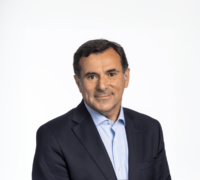
Executive Managing Director and Vice Chairman of the Repsol Foundation
António Calçada is Executive Managing Director and Vice Chairman of the Repsol Foundation, where he oversees projects that advance the company's corporate responsibility goals. With a distinguished career at Repsol, he has held significant positions, including CEO of Repsol Comercial, Chairman of Repsol Portugal, and other senior roles across Europe and Latin America. Calçada earned a degree in industrial engineering from the University of Lisbon and an MBA from IE Business School in Madrid, and he completed the Managing Corporate Resources Program at IMD in Lausanne, Switzerland.

March 11, 2025 • by Mark J. Greeven in The Interview
Haier's CEO Zhou Yunjie explains how the company's innovative "RenDanHeYi" model empowers employees, drives global growth, and adapts to market changes....
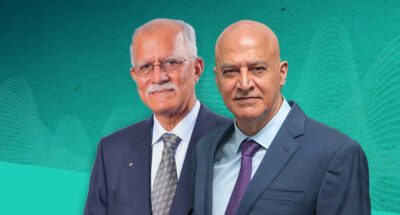
February 12, 2025 • by Marleen Dieleman in The Interview
Tolaram, the Singapore-headquartered family business, has global interests in logistics, consumer goods, and technology. Family members Mohan Vaswani and Sajen Aswani discuss the company’s values-based system of meritocracy, the family’s move to...
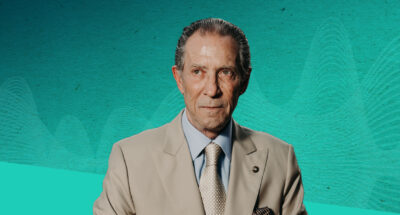
January 14, 2025 • by Peter Vogel in The Interview
In conversation with IMD's Peter Vogel, Bruce Grossman, a fourth-generation family business owner, discusses his achievements and shortcomings in creating frameworks to unite the family business....
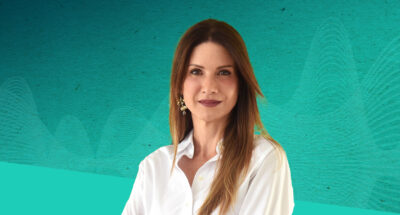
December 3, 2024 • by Peter Vogel in The Interview
Cristina Carvajal, President of one of Latin America’s most respected family enterprises, discusses the benefits of having a family member as the CEO of the family business....